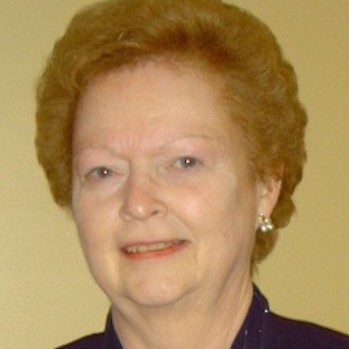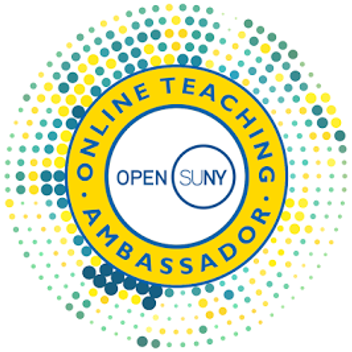Open SUNY Online Teaching Ambassador 2017 – Albany: Millicent Eidson

Millicent Eidson, MA, DVM, DACVPM, is a Professor in the Department of Epidemiology and Biostatistics at the University at Albany School of Public Health. She taught HEPI 625 Zoonoses at UAlbany initially as a three credit, one morning a week lecture class. The course had excellent guest speakers and students rated the course highly. However, the class process was passive. Many students appeared reluctant to participate in verbal class discussion. Dr. Eidson became an early adopter of Blackboard and a strong proponent of many of its tools.
I was a Blackboard early adopter for class documents like slide sets, fact sheets, and journal articles. When my Department asked if I could offer the class fully online, I was reluctant to lose students being able to see and hear the guest speakers. I’ve experimented with speaker audio and audio/visual recording, and finally with VoiceThread have a workable solution. However, speakers need course access, and their recordings can take 2-3 times longer than presenting slides.
My biggest motivation for switching to an online class was Blackboard’s graded discussions. Each week, the students have a series of questions, from which they can choose three to research. Adding just one additional point for an early post is sufficient reward to foster genuine discussion with some posting before the end of the week. Students are required to practice and demonstrate the important public health skills of assessing available evidence and communicating it with professional writing. The public replies and private grade feedback allow me to provide group and individual ‘lessons learned’ to assist them in improving these skills.
I began using Blackboard for exams when the class was blended. Blackboard allows me to create an exam that is a learning experience. Students can use any resources during the exam week except for other people. The process provides students, particularly those less proficient in writing, an opportunity to demonstrate their public health research skills.
This year, I am incorporating small group work where the students can provide each other feedback on draft fact sheet and slide set assignments, simulating real world public health education development. The groups can modify the rubric for grading each other’s assignments at mid-term, with possible input into the final grading rubric I will use at the end of the semester.
Blackboard’s SafeAssign tool has been critically important in teaching about original wording. Fully using SafeAssign tools requires considerable instructor time. Because students are participating in online courses 24/7, they understandably expect the instructor to be online grading and providing feedback multiple times daily. This can be a big adjustment from the more scheduled classroom experience.
In conclusion, students are more interactive and engaged in their learning experience with online teaching.








































